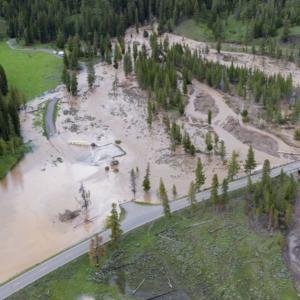Next NC CASC webinar
Date
The Challenge of Planning for Extremes in Natural and Cultural Resources Thursday, September 8, 2022, 11 AM - 12 PM MDT Presented by:
WILLIAM R. TRAVIS North Central Climate Adaptation Science Center and Dept. of Geography, University of Colorado Boulder
Register in advance for this meeting:
https://cuboulder.zoom.us/meeting/register/tJIrceupqzIuEtLWej6caFLxLent3pllgwKR
After registering, you will receive an email confirmation containing information about how to join the meeting.
ABSTRACT: Resource systems in our region and beyond seem to be awash in extreme weather and climate events, mega-drought in the Colorado River Basin, floods in Yellowstone and Death Valley, “heat domes”, “flash droughts,” and wildfire conditions that defy even the most carefully planned and conducted prescribed burns. Extreme events pose a number of distinct challenges to resources planning and management, starting with the analytical effort needed to assess and detect their physical characteristics (frequency, magnitude, etc.), evaluate the threat they pose to natural and cultural resources, their likely evolution in a changing climate, and how to configure these insights into management plans. Managers know that “unexpected” conditions may arise, surprises are likely, and they cope and adapt plans in various ways. The toolkit for dealing with extremes might benefit from lessons from other fields, ranging from aviation to nuclear safety, disaster analysis and reduction, and we will examine some of these approaches, but also apply the most common strategy of all: drawing lessons from recent cases. Webinar participants are encouraged to have a case of extreme conditions or surprising system behavior in mind to offer for discussion.
About the speaker:
Dr. Bill Travis is the University Director of the North Central Climate Adaptation Science Center, an Associate Professor in the Department of Geography at University of Colorado Boulder and the Deputy Director of Earth Lab. He began to study social response to climate variation and change in 1978, analyzing how wheat farmers adapted to drought on the Great Plains. His current research projects focus on climate risk and decision-analysis in agricultural, infrastructural, and ecological systems, with a focus on the role of extreme events in adaptation. Bill is also a research member of the Western Water Assessment, a NOAA Regional Integrated Science and Applications (RISA) program. He received his Ph.D. in Geography from Clark University.


